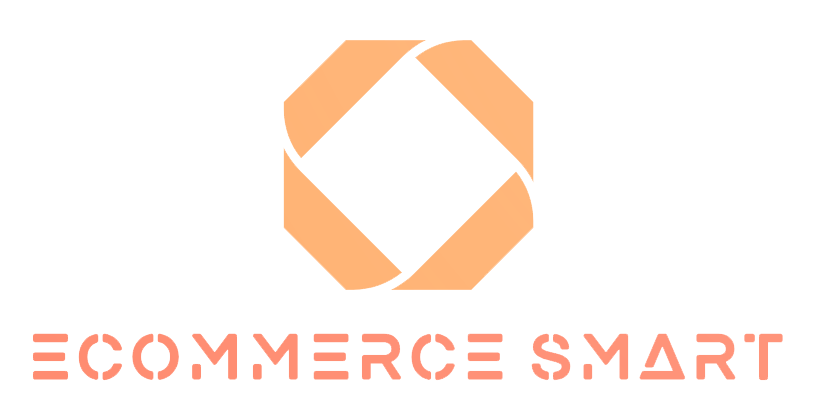Let’s lay it bare: most ecommerce product pages are glorified digital brochures.
They show the product, dump in the standard description, maybe throw in some specs, and then … cross their fingers.
In 2025, that’s not good enough.
Your product page (PDP) is where intent turns into action. It’s where your paid media, SEO, email, affiliate and social campaigns all funnel toward one decisive moment.
And yet, many ecommerce brands are leaking conversions here – often without realising it.
So in this guide, we’re diving into:
- The anatomy of a high-converting product page
- What matters (and what doesn’t)
- Real-world examples
- Tools, tips and tests to run
Whether you’re on Shopify, WooCommerce, Magento or something else, this one’s for you.
Table of Contents for How to Build a High-Converting Product Page
First, What Is a Conversion-Focused PDP?
It’s a page that doesn’t just show the product – it sells the product.
That means:
- Giving customers confidence to buy
- Removing friction and distractions
- Creating urgency and clarity
- Answering objections before they’re asked
- Guiding users from curiosity to checkout
And doing it all in under 30 seconds.
Need help diagnosing your current setup? Our Conversion Rate Optimisation (CRO) service includes full PDP audits and testing roadmaps.
The Building Blocks of a High-Converting PDP
Here’s the structure we recommend – with real-world context.
1. Hero Section That Sells
Your above-the-fold area should include:
- High-quality product imagery (multiple angles, zoom, lifestyle)
- Clear product title (and optionally subtitle)
- Price & availability
- Call to action: “Add to Cart” / “Buy Now”
- Short trust signals: review stars, free shipping badge, etc.
Bonus: Add sticky CTA buttons on mobile for reduced friction.
2. Crystal-Clear Product Description
This isn’t just about specs. It’s about storytelling and clarity.
Include:
- Short summary (benefits-first)
- Detailed overview (if needed, under tabs/accordion)
- Who it’s for / How it’s used
- Size/fit/care info
- Any certifications or quality indicators
→ We often rewrite PDP copy as part of our SEO for Ecommerce service to balance discoverability and conversions.
3. High-Trust Visuals
Images are conversion assets – not just decoration.
Your image gallery should include:
- Product close-ups
- Lifestyle shots in use
- Size comparison (esp. for wearable goods)
- Packaging (to set expectations)
- UGC or real-world photos
Tools like Loox or Okendo can automate photo reviews on Shopify.
4. Social Proof That Converts
Reviews aren’t just nice to have – they build confidence.
Great PDPs include:
- Star ratings with review count
- Full review sections
- Sortable/filterable reviews (e.g. “Size runs small”)
- UGC and photo reviews
- “Verified Buyer” badges
Pro tip: Pull in top reviews automatically for high-margin products using Klaviyo or your email platform.
5. Urgency & Scarcity (Tastefully)
We’re not suggesting fake countdown timers. But urgency works – when used honestly.
Examples:
- “Low stock – only 3 left” (live stock integration)
- “Order within 2 hrs for next-day delivery”
- “New! Limited edition colour”
- Seasonal urgency: “Back-to-school best-seller”
Urgency paired with transparency is a conversion booster.
6. Trust Badges + Friction Removers
To reduce anxiety, show:
- Shipping timelines (with location-specific info)
- Returns policy (summarised, not hidden in the footer)
- Secure checkout indicators
- Money-back guarantees (if available)
- Payment options (e.g. Klarna, PayPal, Apple Pay)
These aren’t just for show. They impact conversion.
→ Need help designing or testing these? Our CRO consultancy includes PDP experiments like these.
7. Smart Cross-Sells and Recommendations
Done well, recommendations drive AOV. Done poorly, they confuse users.
Use:
- “Frequently bought together”
- “You might also like” based on data
- Bundle offers
- Personalised add-ons (especially for gifting)
Avoid overwhelming layouts – the PDP should still be about one product first.
8. Technical SEO Considerations
Yes, PDPs need SEO love too. Make sure you:
- Optimise product title tags + meta descriptions
- Include structured data (schema.org Product)
- Use clean URLs with keywords
- Prevent duplication with canonical tags
- Compress images for load speed
- Include internal links back to category pages
→ All included in our SEO for Ecommerce service.
CRO Tools for Testing PDPs
Want to test and improve your product page performance? Start here:
- Hotjar: Heatmaps, session recordings
- VWO: A/B testing for layout and content
- Nosto: Smart product recommendations
- Crazy Egg: Scroll and click analysis
- [Google Optimize sunset? Use VWO or Convert instead]
Track:
- Add-to-cart rate
- Scroll depth
- Time on PDP
- Clicks on “Buy” vs “Details”
Real-World Examples of High-Converting PDPs
Here are a few ecommerce brands doing it well:
- Allbirds: Sticky CTAs, great use of video, clear returns info
- Bloom & Wild: Gifting info, shipping calendars, subscription upsells
- Solo Stove: Visual hierarchy, review integration, rich content
- Vuori: UGC integration, filtering reviews, social proof in gallery
- Hiut Denim: Minimal design, clear narrative, trust and story
Use tools like BuiltWith or Wappalyzer to spy on how they’re built.
Final Checklist for Your Product Pages
Here’s what to audit:
- Clear CTA above the fold
- High-quality product images
- Social proof & reviews
- Shipping/returns info visible
- Speed-optimised (under 2.5s LCP)
- Schema in place
- Cross-sells personalised
- Description answers why and how
- Trust signals included (payments, badges)
- No distractions – only helpful info
Final Thought on How to Build a High-Converting Product Page
Your product pages are the unsung heroes of your ecommerce site.
They don’t get flashy headlines or big ad budgets – but they quietly make or break your bottom line.
A high-converting PDP doesn’t just look good – it removes friction, builds trust, and drives action.
Want expert eyes on your product pages? Explore our CRO service
Or book a discovery call and let’s talk about quick wins and bigger optimisations









0 Comments